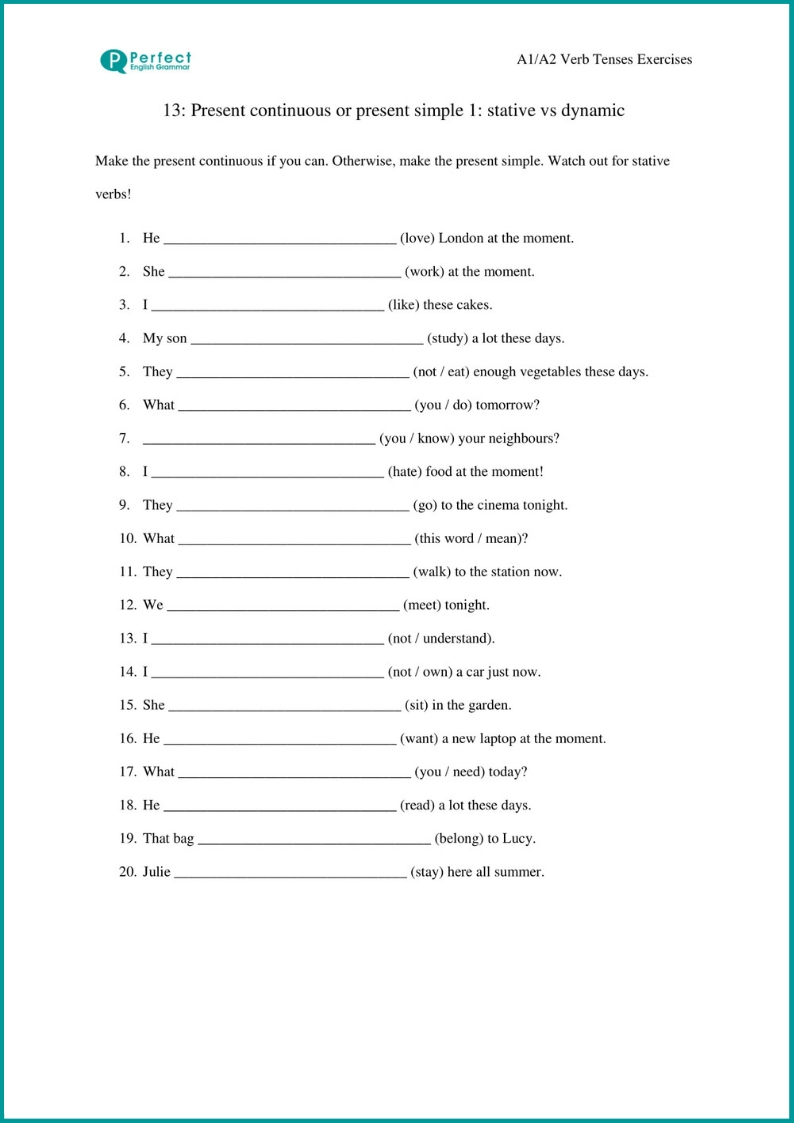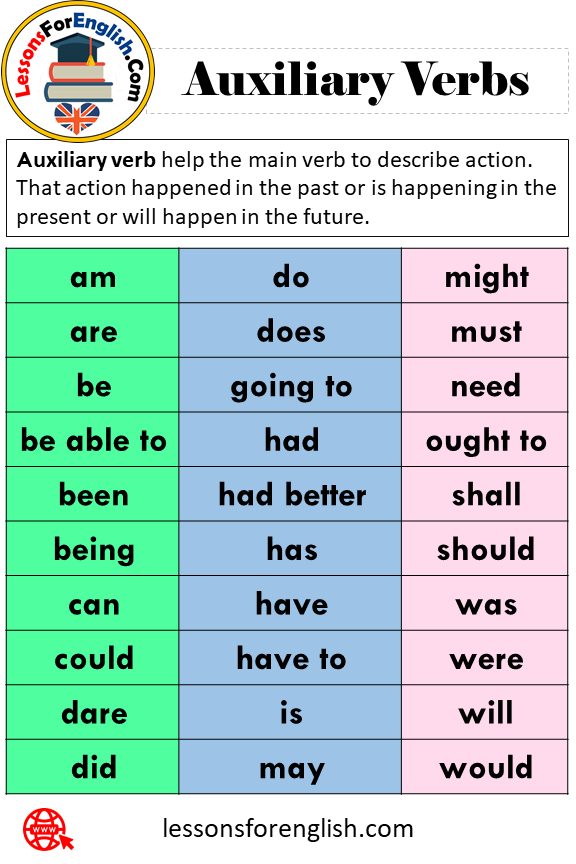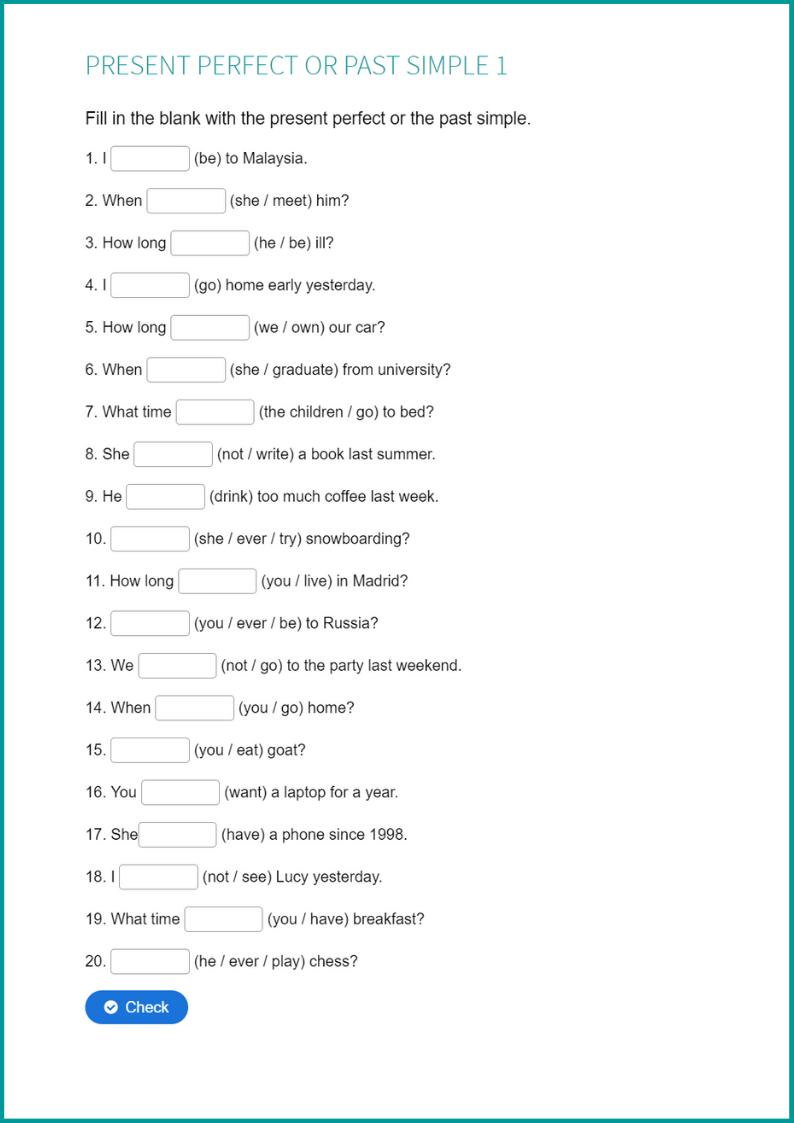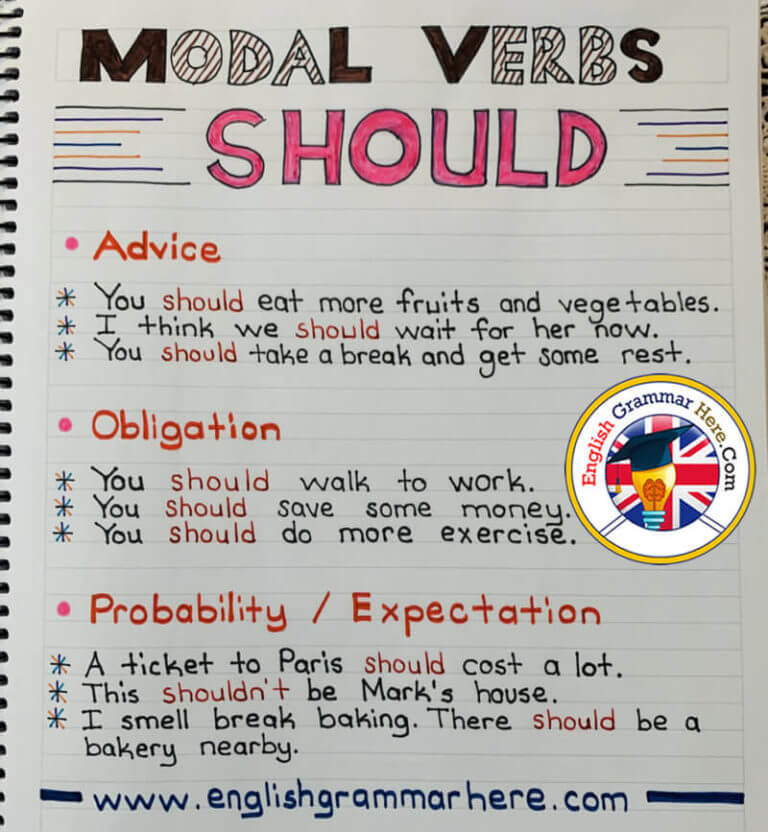Modal verbs are types of auxiliary verbs which express necessity, ability, permission or possibility. Modal verbs don't have a past form and a past participle . When you use other tenses you have to replace them. Modal verbs are so common that most English speakers don't even know what the grammatical name for them is. Note that modal auxiliary verbs are a type of auxiliary verb.
Auxiliary verbs encompass tenses, aspects, modality , voice, emphasis and so on. There are many other category of verbs in English like phrasal verbs. In this ESL skills course you can learn natural English phrases. Learn even more about English grammar in this introduction to grammar course.
What Are Modal Verbs In English Grammar In English, the modal verbs are used to express ability, possibility, permission or obligation. Each one of the modal verbs can be used to express one or more of these modalities. They can also be used to form the future tense in English and to make conditional sentences. The modal verbs in English grammar are can, could, may, might, must, need not, shall/will, should/ought to. They express things like ability, permission, possibility, obligation etc. They do not take -s in the simple present and they do not have a past simple or past participle form.
However, some modal verbs have alternative forms that allow us to express the same ideas in different tenses. These auxiliaries express obligation, possibilities, permission or ability in a sentence by adding meaning to the main verb. As per modal verbs rules, the spelling or form do not change, unlike other verbs. Modal verbs or modal auxiliary verbs are a type of verbs that indicates modality, i.e., likelihood, permission, ability and obligation. Some of the common modal verbs are can, could, may, might and must. In English, modal verbsare a small class of auxiliary verbs used to express ability, permission, obligation, prohibition, probability, possibility, advice.
Modals/ modal verbs/ modal auxiliary verbs are a special type of verbs present in English grammar. These verbs are used irregularly in English grammar. Uses of modal verbs in English grammar includes providing extra information about the action of the main verb.
The main use of the modal verb "will" is to form the future form of the verbs in English. When talking about demands and requests, the use of will sometimes is not as polite as other modal verbs. It can be used to talk about ability and permission in the past. Also, just like the modal verb "can", the modal verb "could" can be used to make questions, requests, suggestions or offers, but in a more polite way.
It can also be used to talk about possibilities, but not as strong possibility that the one expressed with "can". As if English wasn't hard enough to learn, modal verbs complicate things even further. There are a lot of irregularities in the English language that can be confusing to students learning it as a second to their native tongue. English and other Germanic languages, however, utilize modal verbs to help express a function and are vital to gaining command of the English language. VerbTom and Suemightarrivelater.Everyonecanswim.In questions, the word order changes to modal + subject + main verb.
In order to read or download modal verbs of ability 1 perfect english grammar pdf ebook, you need to create a FREE account. A greater variety of double modals appears in some regional dialects. In English, for example, phrases such as would dare to, may be able to or should have to are sometimes used in conversation and are grammatically correct.
The double modal may sometimes be in the future tense, as in "I will ought to go," where will is the main verb and ought to is also an auxiliary but an infinitive. Another example is We must be able to work with must being the main auxiliary and be able to as the infinitive. Other examples include You may not dare to run or I would need to have help. Ought is used with meanings similar to those of should expressing expectation or requirement. The principal grammatical difference is that ought is used with the to-infinitive rather than the bare infinitive, hence we should go is equivalent to we ought to go. Because of this difference of syntax, ought is sometimes excluded from the class of modal verbs, or is classed as a semi-modal.
The negated forms are will not (often contracted to won't) and would not (often contracted to wouldn't). For contracted forms of will and would themselves, see § Contractions and reduced pronunciation above. Note that the preterite forms are not necessarily used to refer to past time, and in some cases, they are near-synonyms to the present forms.
Note that most of these so-called preterite forms are most often used in the subjunctive mood in the present tense. The auxiliary verbs may and let are also used often in the subjunctive mood. Famous examples of these are "May The Force be with you." and "Let God bless you with good." These are both sentences that express some uncertainty; hence they are subjunctive sentences. The English modal verbs are a subset of the English auxiliary verbs used mostly to express modality (properties such as possibility, obligation, etc.).
They can be distinguished from other verbs by their defectiveness and by their neutralization (that they do not take the ending -s in the third-person singular). Modal verbs are used to express ability, obligation, permission, assumptions, probability and possibility, requests and offers, and advice. Each modal verb can have more than one meaning which depends on the context of that sentence . Modal verbs, sometimes called modals, are auxiliary verbs . They express such things as possibility, probability, permission and obligation. When used with other verbs in the sentence, they can make your meaning as clear as you want it to be.
Test your knowledge of modal verbs with an examination of may vs. might. You can also make sure you're using can vs. could correctly in your writing and everyday speech. As a modal verb, "should" has many important uses in the English language. It's used to give advice, to express what's right, and to recommend an action. Also, it's used to make predictions, but ones that are more uncertain than those with the other modal verbs.
The modal verb "might" is used to express possibility in the present or in the future. It can be used as the verb "may" most times, however, it often means that the event has less possibility of happening than when it's said using may. Its negative form, "might not " is used to talk about possibilities but in a negative way. These modal verbs help you every day in your conversation.
To improve your English communication skills, you can join a course and learn grammar in-depth. A spoken English course will not only help you develop your English communication skills but also will make you fluent in the language. All of these modal verbs must come before a verb to help express at least one of the modality examples listed above.
In some cases, though they can be used to express more than one modality, but you'll see more on that in the following section. So, let's take a look at some example sentences and highlight how the modal verb is expressing modality and adding more information to the verbs that follow them. In formal standard English usage, more than one modal verb is not used consecutively, as modals are followed by a base verb, which they themselves lack.
They can be combined only with non-modal constructions that have a modal function, such as have to, which in spite of its function is not a modal verb. Thus, might have to is acceptable, but might must is not, even though must and have to can normally be used interchangeably. However the main auxiliary , does not have to be in the infinitive. To put double modals in past tense, only the first modal is changed as in I could ought to. Double modals are also referred to as multiple modals. The verbs dare and need can be used both as modals and as ordinary conjugated (non-modal) verbs.
As non-modal verbs they can take a to-infinitive as their complement (I dared to answer her; He needs to clean that), although dare may also take a bare infinitive (He didn't dare go). In their uses as modals they govern a bare infinitive, and are usually restricted to questions and negative sentences. There are a wide variety of modal auxiliary and their function. So, let's waste no more time and begin the learning journey.
Normally modal verbs cannot work alone and must work with the main verb. Have to is often grouped with modal auxiliary verbs for convenience, but in fact it is not a modal verb. In English grammar, a modal is a verb that combines with another verb to indicate mood or tense. A modal, also known as a modal auxiliary or modal verb, expresses necessity, uncertainty, possibility, or permission. There are certain rules which surround the use of modal verbs, for example the word 'to' must never be used after a modal verb. Learning these rules and how a modal verb can function within a sentence can greatly help you in forming grammatically correct sentences.
Read the following examples and explanations carefully. We can often choose between two modal verbs with similar meanings when we ask questions or make requests. We use modal verbs to express ability, to give advice, to ask for and give permission, to express obligation, to express possibility, to deduce and to make predicitions.
Modal verbs are a part of the larger category called auxiliary verbs which are verbs that cannot be used on their own. Sometimes modal verbs are called modal auxiliaries. The nine main modal verbs express a range of meanings, which may differ very subtly. The main meanings, especially those used in formal English, will be summarised here. Note - The modal auxiliary verbs are always followed by the base form of the main verb. All the auxiliary verbs except be, do and have are called modals.
Unlike other auxiliary verbs modals only exist in their helping form; they cannot act alone as the main verb in a sentence. You can also use modal verbs of necessity in imperative sentences. Must and should are commonly found when a speaker gives advice or makes commands. Modal verbs are auxiliary verbs, also known as helping verbs. They work with other verbs to show various conditions, such as possibility or necessity.
Modal verbs do not change form based on the verb tense of the sentence; they do not have conjugated forms. Modal verbs indicate possibility, obligation or ability. Find out how your child will be taught about modal verbs in grammar lessons in KS2 and the kinds of activities they might be asked to complete in the primary-school classroom. Learn about the usage of modal verbs and their alternative forms in English grammar with Lingolia's online lesson. Then put your knowledge to the test in the interactive exercises. Modal verbs are a fundamental part of English because they express obligations, abilities, probabilities, suggestions and much more.
So learning how to use modal verbs can really improve your level of fluency. Let's have a look to see what modal verbs have in common and the many ways they can be used. Shall is a word that is used in England to express a future promise and to form a simple present for I and we. It's commonly used in formal and legal situations in the United States to form polite questions that include a polite request for permission.
It can also be used to offer assistance, make suggestions, or ask for advice. Modal verbs are for example may, can, must, should, need. They express an ability, permission, wish etc. to do something. (I may, can, must swim.) Many modal verbs cannot be used in all of the English tenses. That's why we need to know the substitutes to these modal verbs.
Each video comes with interactive captions—click any word for an instant definition and pronunciation. FluentU will also show you other videos that have the verb so you can learn how to use it in any context. It's a great way to absorb the different uses of English modal verbs, which can get confusing. And you'll be actively building your English vocabulary at the same time.
Past modal verbs such as may and might can also speculate about something that has happened. As in other modal examples, adding "not" makes the sentence negative. Some speakers add can to this list, as in "Can I spend the night at David's house? " Strict grammarians believe that may is the proper modal verb to use in these cases, as can is traditionally a modal of ability. However, the rules regarding can vs. may have loosened up to allow can as a modal of permission in informal cases.
The modal verbs could, may and might indicate that there is a possibility or probability that something will happen. Today we will take a look at the modal verbs could have, would have and should have. These past tense modals are useful for expressing your present feelings about a past decision . Etc also match the classic definition of modal verbs. So while linguists may like to consider modal verbs as a syntaxical category, in the context of language teaching or learning it is more useful to study modal verbs as a semantic family.
Auxiliary verbs add grammatical or functional meaning to the clauses in which they are used. They can be used to express aspect, voice, modality, tense, etc. "Have" is an auxiliary, which helps express the perfect aspect. To learn more details about modal verbs and how they express moods such as ability, possibility, necessity or other conditions, go to page 2. All modal verbs must be followed by a main verb in the base form except for ought which is followed by an infinitive.
Part 1 explains the grammar of modal verbs and where they are placed in a sentence or question. Part 2 explains the meaning of each modal verb and provides example sentences. Words and expressions in English, apart from the main modal verbs, which also express modal meanings.




























No comments:
Post a Comment
Note: Only a member of this blog may post a comment.